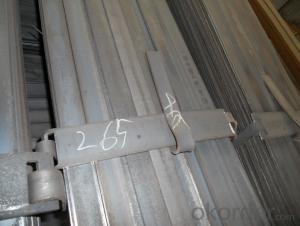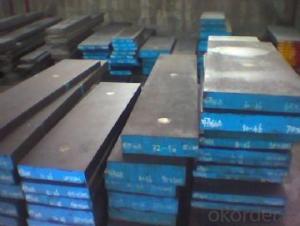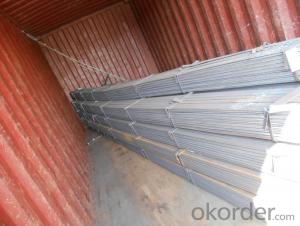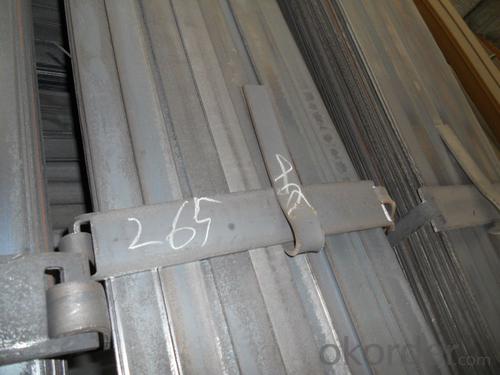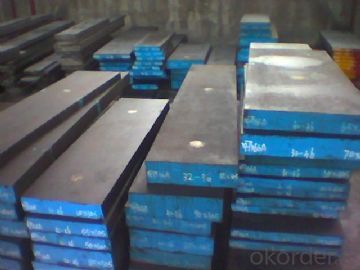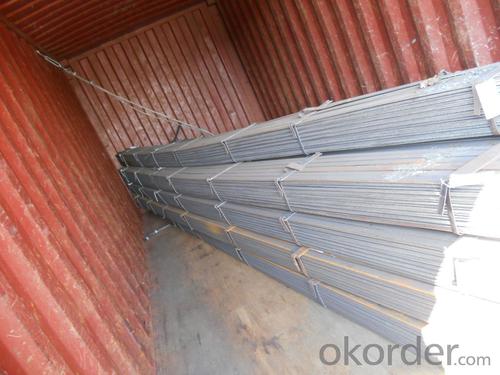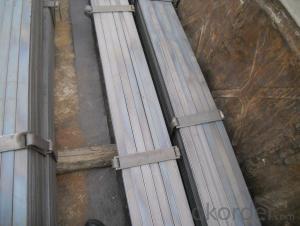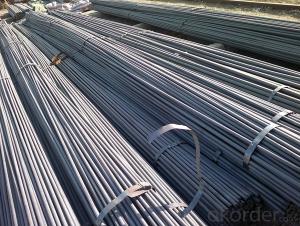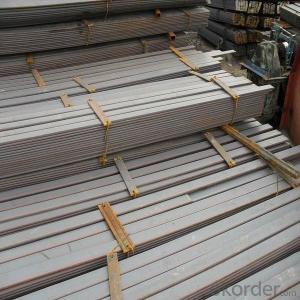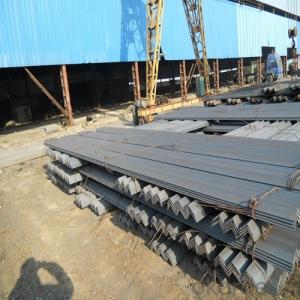Hot rolled Spring Steel Bar/billet/products JIS standard/Europe standard/ ASTM standard
- Loading Port:
- Shanghai
- Payment Terms:
- TT OR LC
- Min Order Qty:
- 50 m.t.
- Supply Capability:
- 1200 m.t./month
OKorder Service Pledge
OKorder Financial Service
You Might Also Like
Specifications
Spring steel flat bar
Garde: 60Si2Mn, 60Si2MnA, 55CrMnA,50CrVA
Standard GB,JIS,ASTM,DIN,AISI,BS
LF & VD forge;ISO&TUV appr
Materials
Q195,Q215,Q235B,Q345B,
S235JR/S235/S355JR/S355
SS440/SM400A/SM400B
Product Category
Metallurgy,Mineral &Energy
Technique
HOT ROLLED
Packing
1.Big OD:in bulk
2.Small OD:packed by steel strips
3.woven cloth with 7 slats
4.according to the requirements of customers
Usage
Mechanical&manufacture,Steel strcuture,
Shipbuilding,Bridging,Automobile chassis
Main market
Middle East,Africa, Asia and some Uropean country and America ,
Australia
Country of origin
China
Productivity
15000 Metric Tons pet Month
Remark
Payment terms :T/T ,L/C
Terms of trade :FOB ,CFR,CIF ,DDP,EXW
Minimum order : 10 tons
Lead time :on or before 3-15 working days .
- Q: How does special steel contribute to reducing material waste?
- Special steel contributes to reducing material waste through its superior properties and durability. Unlike traditional steel, special steel is designed to have enhanced strength, corrosion resistance, and wear resistance. These properties allow for the production of thinner and lighter components without compromising their functionality, leading to reduced material consumption. Additionally, the longevity and resistance to wear of special steel products result in longer service life, minimizing the need for frequent replacements and further reducing material waste.
- Q: How does special steel contribute to the telecommunications industry?
- Special steel plays a crucial role in the telecommunications industry by providing the necessary materials for the production of various components such as cables, connectors, and transmission towers. It offers exceptional strength, durability, and resistance to corrosion, allowing for reliable and long-lasting infrastructure. Whether it's in the form of high-tensile steel wires for cables or corrosion-resistant steel for towers, special steel ensures efficient and uninterrupted communication networks, supporting the growth and advancement of the telecommunications industry.
- Q: How does special steel contribute to the manufacturing of fasteners?
- Special steel is an essential material in the manufacturing of fasteners due to its unique properties and characteristics. Firstly, special steel offers high strength and durability, making it ideal for the production of fasteners that are required to withstand heavy loads and high levels of stress. This ensures that the fasteners can securely hold components together without breaking or becoming loose over time. Additionally, special steel is known for its excellent corrosion resistance. Fasteners are often exposed to various environmental conditions, including moisture, chemicals, and extreme temperatures. The corrosion resistance of special steel helps to prevent rust and deterioration, ensuring the longevity and reliability of the fasteners. Furthermore, special steel can be easily formed, machined, and heat-treated, allowing for the production of fasteners with precise dimensions and customized designs. This versatility in manufacturing processes enables the creation of fasteners that can meet specific application requirements, such as different thread types, sizes, and head styles. Moreover, special steel offers excellent wear resistance and hardness, which is crucial for fasteners that are subjected to repetitive motions or constant friction. The hardness of special steel helps the fasteners maintain their shape and integrity, reducing the risk of deformation or failure during operation. Overall, special steel plays a vital role in the manufacturing of fasteners by offering high strength, corrosion resistance, versatility in manufacturing processes, and excellent wear resistance. These properties ensure that fasteners are reliable, long-lasting, and capable of withstanding the demands of various industries, including automotive, aerospace, construction, and machinery.
- Q: What are the different cryogenic grades of special steel?
- There are several cryogenic grades of special steel, including but not limited to, austenitic stainless steel (such as 304L and 316L), ferritic stainless steel (such as 410 and 430), and martensitic stainless steel (such as 440C). These grades are specifically designed to maintain their mechanical properties and resist brittleness at extremely low temperatures.
- Q: Can special steel be used in the chemical industry?
- Yes, special steel can be used in the chemical industry. Special steel is often chosen for its resistance to corrosion, high temperature stability, and strength, making it suitable for various applications in the chemical industry such as storage tanks, pipelines, and equipment used in the manufacturing of chemicals.
- Q: How does the composition of special steel affect its properties?
- The composition of special steel greatly affects its properties. By adjusting the amounts of elements like carbon, manganese, chromium, and nickel, the steel's hardness, strength, corrosion resistance, and heat resistance can be modified. Additionally, the presence of specific elements can also enhance other properties such as toughness, wear resistance, and machinability. Therefore, careful control of the composition allows manufacturers to tailor the steel's properties to meet specific requirements for different applications.
- Q: Can special steel be used in the semiconductor manufacturing industry?
- Yes, special steel can be used in the semiconductor manufacturing industry. Special steel alloys with high levels of purity and specific properties, such as high thermal conductivity and resistance to corrosion, can be utilized in various applications within semiconductor manufacturing, including the fabrication of specialized tools, equipment, and components.
- Q: What are the characteristics of tool steel?
- Tool steel is a type of steel that possesses exceptional hardness, strength, and wear resistance, making it ideal for manufacturing various tools. It typically contains high levels of carbon, along with other alloying elements like chromium, vanadium, and tungsten. Tool steel also exhibits good toughness, heat resistance, and ability to retain sharpness. Additionally, it can be hardened and tempered to achieve desired properties for specific applications.
- Q: How does special steel perform in construction applications?
- Special steel, also known as alloy steel, plays a crucial role in construction applications due to its exceptional properties and performance characteristics. This type of steel is specifically engineered to possess enhanced strength, durability, and resistance to various environmental factors, making it highly suitable for demanding construction projects. One of the key advantages of special steel in construction is its high strength-to-weight ratio. This means that it can withstand heavy loads and pressures while maintaining a relatively low weight, allowing for more efficient and cost-effective designs. Additionally, special steel exhibits excellent fracture toughness, which ensures that structures built with this material can withstand significant impacts and vibrations without failing. Another significant benefit of special steel is its exceptional corrosion resistance. Construction projects often face exposure to harsh weather conditions, chemicals, and moisture, which can lead to rusting and deterioration of traditional steel. However, special steel contains elements such as chromium, nickel, and molybdenum, which provide excellent resistance to corrosion and oxidation, ensuring the longevity and durability of structures. Furthermore, special steel offers excellent weldability, allowing for efficient and secure joining of various components during construction. This enables the fabrication of complex structures while maintaining their integrity and strength. In addition to its mechanical properties, special steel can also provide additional benefits in construction applications. For example, certain types of special steel possess excellent fire resistance, making them ideal for constructing fire-resistant structures or components. Furthermore, some types of special steel offer enhanced electrical conductivity, making them suitable for applications that require efficient transmission of electricity. Overall, special steel's superior strength, durability, corrosion resistance, weldability, and additional properties make it an excellent choice for a wide range of construction applications. From high-rise buildings, bridges, and infrastructure to offshore structures and industrial facilities, special steel ensures the construction of safe, reliable, and long-lasting structures in various challenging environments.
- Q: What are some common applications of special steel?
- Some common applications of special steel include manufacturing of automobiles, aircraft, and machinery, as well as in construction, oil and gas pipelines, and power generation. It is also used in the production of tools, cutlery, and surgical instruments, due to its durability, strength, and corrosion resistance properties.
Send your message to us
Hot rolled Spring Steel Bar/billet/products JIS standard/Europe standard/ ASTM standard
- Loading Port:
- Shanghai
- Payment Terms:
- TT OR LC
- Min Order Qty:
- 50 m.t.
- Supply Capability:
- 1200 m.t./month
OKorder Service Pledge
OKorder Financial Service
Similar products
Hot products
Hot Searches
Related keywords
